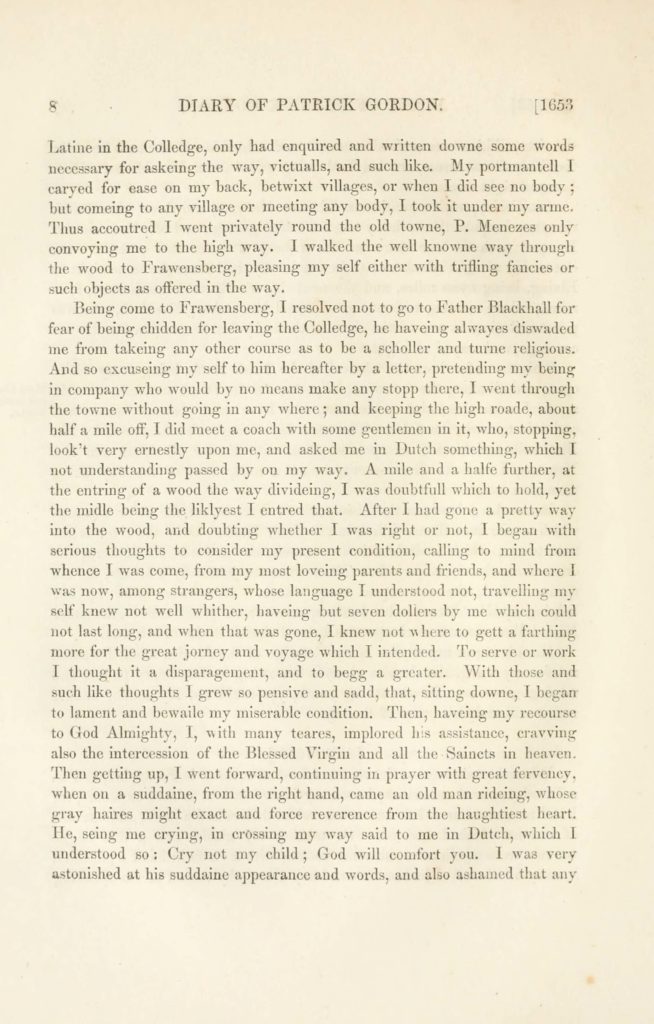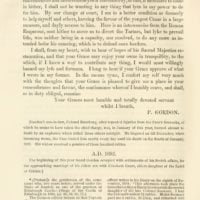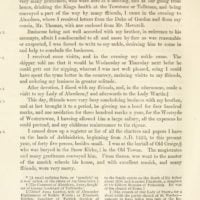
Related
![1686] DIARY OF PATRICK GORDON. 155 Crossing the Black River](https://cdn2.picryl.com/thumbnail/1699/12/31/1686-diary-of-patrick-gordon-155-crossing-the-black-river-daa006-200.jpeg)
1686] DIARY OF PATRICK GORDON. 155 Crossing the Black River

174 DIARY OF PATRICK GORDON. [1692 be restored. As for Harie Gordon
![1667] DIARY OF PATRICK GORDON. lOl with their officers, from which 1 diswaded them, that the Emperour](https://cdn2.picryl.com/thumbnail/1699/12/31/1667-diary-of-patrick-gordon-lol-with-their-officers-from-which-1-diswaded-b66781-200.jpeg)
1667] DIARY OF PATRICK GORDON. lOl with their officers, from which 1 diswaded them, that the Emperour

148 DIARY OF PATRICK GORDON. [1686 gave him a warning concerning tlie wedsett of the Muirtacke

172 DIARY OF PATRICK GORDON. [1690 his name was not in it, it being sent to him to be dehvered pubhkely
![1686] DIARY OF PATRICK GORDON. 117 maides, 1 doller 1 floren 14 pence](https://cdn2.picryl.com/thumbnail/1699/12/31/1686-diary-of-patrick-gordon-117-maides-1-doller-1-floren-14-pence-70942c-200.jpeg)
1686] DIARY OF PATRICK GORDON. 117 maides, 1 doller 1 floren 14 pence
![1666] DIARY OF PATEICK GORDON. 81 mariners aud souldlers](https://cdn2.picryl.com/thumbnail/1699/12/31/1666-diary-of-pateick-gordon-81-mariners-aud-souldlers-ea9fb7-200.jpeg)
1666] DIARY OF PATEICK GORDON. 81 mariners aud souldlers
![1661] DIARY OF PATRICK GORDON. 33 sence of the King](https://cdn2.picryl.com/thumbnail/1699/12/31/1661-diary-of-patrick-gordon-33-sence-of-the-king-a87f39-200.jpeg)
1661] DIARY OF PATRICK GORDON. 33 sence of the King
![1655] DIAEY OF PATRICK GORDON. 17 who was, according to the custome of the Polonian nobility](https://cdn2.picryl.com/thumbnail/1699/12/31/1655-diaey-of-patrick-gordon-17-who-was-according-to-the-custome-of-the-polonian-7b403f-200.jpeg)
1655] DIAEY OF PATRICK GORDON. 17 who was, according to the custome of the Polonian nobility
8 DIARY OF PATRICK GORDON. [1653 Latlne in the Colledge, only had enquired and written downe some words
Summary
Passages from the diary of General Patrick Gordon of Auchleuchries : A.D. 1635-A.D. 1699"
8 DIARY OF PATRICK GORDON. [1653
Latlne in the Colledge, only had enquired and written downe some words
necessary for askeing the way, victualls, and such like. My portmantell 1
carved for ease on my back, betwixt villages, or when I did see no body ;
but comeing to any village or meeting any body, I took it under my arme.
Thus accoutred I went privately round the old towne, P. Menezes only
convoying me to the high way. I walked the well knowne way through
the wood to Frawensberg, pleasing my self either with trifling fancies or
such objects as offered in the way.
Being come to Frawensberg, I resolved not to go to Father Blackball for
fear of being chidden for leaving the Colledge, he haveing alwayes diswaded
me from takeing any other course as to be a scholler and turne religious.
And so excuseing my self to him hereafter by a letter, pretending my being
in company who would by no means make any stopp there, I went through
the towne without going in any where ; and keeping the high roadc, about
half a mile off", I did meet a coach with some gentlemen in it, who, stopping,
look't very ernestly upon me, and asked me in Dutch something, which I
not understanding passed by on my way. A mile and a halfe further, at
the entring of a wood the way divideing, I was doubtful! which to hold, yet
the midle being the liklyest I entred that. After I had gone a pretty way
into the wood, and doubting whether I was right or not, I began with
serious thoughts to consider my present condition, calling to mind from
whence I was come, from my most loveing parents and friends, and where I
was now, among strangers, whose language I understood not, travelling my
self knew not well whither, haveing but seven doliers by me which could
not last long, and when that was gone, I knew not ^^ here to gett a farthing
more for the great jorney and voyage wliich I intended. To serve or work
I thought it a disparagement, and to begg a greater. With those and
such like thoughts I grew so pensive and sadd, that, sitting downe, I began
to lament and bewalle my miserable condition. Then, haveing my recourse
to God Almighty, I, \Nith many teares, implored h:s assistance, cravving
also the intercession of the Blessed Virgin and all the Saincts in heaven.
Then getting up, I went forward, continuing in prayer with great fervency,
when on a suddaine, from the right hand, came an old man rideing, whose
gray haires might exact and force reverence from the haughtiest heart.
He, seing me crying, in crossing my way said to me in Dutch, which I
understood so : Cry not my child ; God will comfort you. I was very
astonished at his suddaine appearance and words, and also ashamed that any
Gordon was brought up and remained a lifelong Roman Catholic, at a time when the Church was being persecuted in Scotland. At age of fifteen, he entered the Jesuit college at Braunsberg, East Prussia, then part of Poland. In 1661, after many years experiences as a soldier of fortune, he joined the Russian army under Tsar Aleksei I, and in 1665 was sent on a special mission to England. After his return, he distinguished himself in several wars against the Turks and Tatars in southern Russia. In recognition of his service he was promoted to major-general in 1678, was appointed to the high command at Kiev in 1679, and in 1683 was made lieutenant-general. In 1687 and 1689 he took part in expeditions against the Tatars in the Crimea, being made a full general. Later in 1689, a revolution broke out in Moscow, and with the troops under his command, Gordon virtually decided events in favor of Peter the Great against the Regent, Tsarevna Sophia Alekseyevna. Consequently, he was for the remainder of his life in high favor with the Tsar, who confided to him the command of his capital during his absence from Russia. In 1696, Gordon's design of a "moveable rampart" played a key role in helping the Russians take Azov. One of Gordon's convinced the Tsars to establish the first Roman Catholic church and school in Muscovy, of which he remained the main benefactor and headed the Catholic community in Russia until his death. For his services his second son James, brigadier of the Russian army, was created Count of the Holy Roman Empire in 1701. At the end of his life the Tsar, who had visited Gordon frequently during his illness, was with him when he died, and with his own hands closed his eyes. General Gordon left behind him a uniquely detailed diary of his life and times, written in English. This is preserved in manuscript in the Russian State Military Archive in Moscow. Passages from the Diary of General Patrick Gordon of Auchleuchries (1635–1699) was printed, under the editorship of Joseph Robertson, for the Spalding Club, at Aberdeen, Scotland, 1859.
